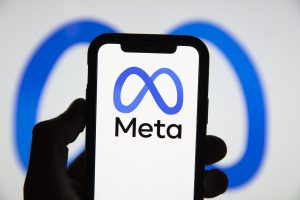Cambodia’s government has declared 22 members of Meta’s Oversight Board personae non gratae, after the social media platform suspended the Facebook account of Prime Minister Hun Sen over breaches of its policy on violence and incitement.
In a decision released last week, the Oversight Board, a panel of independent experts contracted by the U.S. tech giant to rule on sensitive moderation issues, called for the Cambodian leader’s busy account to be suspended for six months over a livestreamed speech in which he threatened his opponents with violence. Meta followed through by suspending the account the following day, prompting Hun Sen to deactivate his account and announce a face-saving migration to Telegram and TikTok.
In a statement yesterday, the Ministry of Foreign Affairs described the Oversight Board’s recommendation as “political in nature.”
“It intends to obstruct the freedom of the press for the citizens of Cambodia and the right to receive credible news from a leader whom they support and admire,” it stated. “In the spirit of unwavering adherence to upholding the principle of sovereignty and to prevent the interference into the internal affairs of Cambodia, the government has decided to declare the following members of the Oversight Board to Meta Platforms Inc as persona non grata.”
The list of 22, which includes former Guardian editor Alan Rusbridger and former Danish Prime Minister Helle Thorning-Schmidt, among other experts in international law, are “barred from entering or remaining in the Kingdom of Cambodia.”
It is hard to argue the merits of the Board’s decision, which centered on a speech that Hun Sen gave in January, in which he explicitly threatened opposition members with violence if they accused his Cambodian People’s Party (CPP) of enjoying an unfair electoral advantage.
“There are only two options: one is using legal action, the other is using sticks… What do you want?” Hun Sen said in the speech. “Either you face legal action in court or I rally CPP people for a demonstration and beat you guys up.”
In its decision, the Board said that it was overruling an earlier decision by Meta to allow the post to remain online because Hun Sen’s status as a national leader made his remarks newsworthy. The Board dismissed this logic, arguing that “the harm caused by allowing the content on the platform outweighs the post’s public interest value.”
That said, while the Cambodia case has the potential to set an important precedent for how Facebook is used by national leaders, the fact that the country was chosen as a test case was guaranteed to get under the Cambodian leader’s skin. In interesting ways, the Oversight Board’s decision to pursue the Hun Sen case parallels the way that Cambodia has often been viewed by Western governments in the past: as a strategically marginal nation where there is little cost to taking a stand on democratic and human rights principles.
While Western governments have not always followed through on these pledges in practice, their attempts to uphold these standards have long been a source of anger for the prime minister, who has never hesitated to point out that Cambodia’s more strategically salient neighbors have often avoided the same degree of criticism and censure. (For instance, Hun Sen clearly seethes that he has never received an invitation to the White House, a privilege recently accorded to Thailand’s military leader Prayut Chan-o-cha, the chief of the Communist Party of Vietnam, and the Philippines’ Rodrigo Duterte, who turned it down.)
Sure enough, the 70-year-old Cambodian leader leveled just this accusation at Meta, which he last week accused of taking no action when Cambodian opposition figures allegedly used Facebook “to urge the Cambodian armed forces to stage an uprising and arrest the prime minister by force of violence.” As with past Western criticisms, Hun Sen has long viewed this double standard as evidence of malicious political intent.
As a result, the Cambodian response is in many ways to be expected. The ball is now in Meta’s court. How and whether it applies the Cambodia precedent in the case of other nations that have larger Facebook user bases and are more important to its bottom line – one thinks here of its collusion with Vietnamese authorities to remove alleged “anti-state” content – will go a long way to determining whether its action was simply virtue-signaling or a genuine attempt to regulate the platform.

































